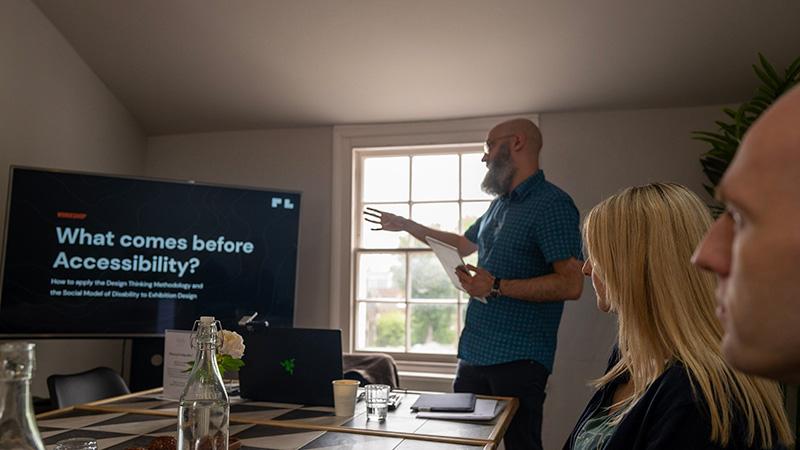Museums, Galleries and Contemporary Culture MA alumnus Raül Leiva Olmo’s final piece has been published in The International Journal of the Inclusive Museum, exploring the accessibility of digital screens in museums.

Raül has always been passionate about the intersection of technology and cultural heritage. While digital screens have become prevalent in museums, not everyone can access or interact with them in the same way. He noticed the gap in understanding of the barriers people face when trying to engage with these screens and felt compelled to explore the topic to ensure that museums were as inclusive as possible.
He found that these barriers can be grouped into four main categories: attitudinal, physical, communicational and technological, and organisational. While some barriers like stairs and narrow doorways are obvious, others, such as communicational barriers related to language or technological barriers involving touch screen interactions, may not be immediately evident but can still have a significant impact on a visitor’s experience.
To address these barriers, Raül developed a toolkit which can help detect the most common access challenges. To create this, the Westminster graduate crafted an extensive review of literature, interviews with museum professionals and observation studies. By identifying these barriers, the toolkit encourages museum professionals to empathise with visitors who may be struggling to access certain parts of the venue.
Museum professionals and designers can use the toolkit as a starting point, as it serves as a guide and allows them to audit their current exhibitions and spaces to detect potential obstacles.
About the project Raül said: “In today's world, there's a growing emphasis on inclusivity and ensuring that spaces, both physical and digital, are accessible to all. As museums continue to adopt digital technologies, it is vital to ensure that these technologies are inclusive. My research helps bridge the gap between technology and accessibility, ensuring that as we move forward, we don't leave anyone behind.”
Raül graduated from Westminster in 2022 and was drawn to the University due to its reputation in the field of Museum Studies.
About his experience he said: “Studying at Westminster offered a diverse and dynamic environment. I appreciated the opportunity to engage with a multicultural cohort and learn from professors who are leaders in their fields. The blend of theory and practical application ensured that I was well-prepared to tackle real-world challenges. The curriculum, faculty, and the resources available ensured that I would receive a holistic education that combined both academic rigor and practical knowledge.”
Raül now plans to continue his work in the realm of digital inclusivity, with his next project set out to explore AI technologies in public spaces and look into how they can help accessibility challenges.
Find out more about Westminster’s School of Art, Design and Visual Culture.


